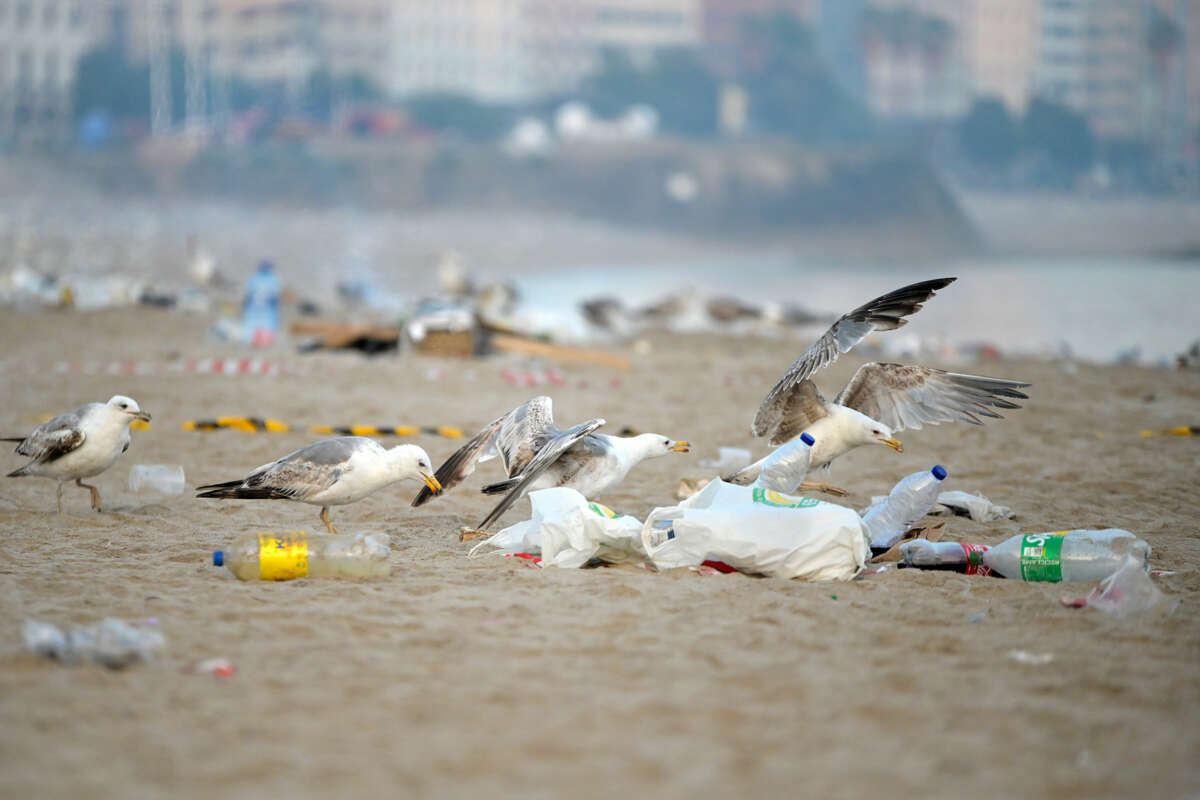Scientists behind a new study on the crossing of the Earth’s “planetary boundaries” on Wednesday likened the planet to a sick patient, warning that six out of nine barriers that ensure the Earth is a “safe operating space for humanity” have now been breached.
Researchers at the University of Copenhagen, the Potsdam Institute for Climate Impact Research (PIK), and other international institutions analyzed 2,000 studies to update a planetary boundary framework developed in 2009 by the Stockholm Resilience Center, completing the first “complete check-up of all nine processes and systems that determine the stability and resilience of the planet.”
The boundaries for climate change and land use have been broken for decades as extractive industries have razed forests and planet-heating fossil fuel emissions have significantly increased since preindustrial times.
The “novel entities” boundary — pertaining to the accumulation of synthetic pollution from substances such as microplastics, pesticides, and nuclear waste — was quantified for the first time in the study, which was published in Science Advances.
Freshwater change — both “green” freshwater in soil and vegetation and “blue” freshwater in bodies of water — has also been breached, along with biogeochemical flows, or the flow of nitrogen and phosphorus into the environment, which can create ocean dead zones and algal blooms.
The study marked the first time researchers quantified a control variable for the “biosphere integrity” boundary, which they found was breached long before the framework was introduced — in the late 19th century as the Industrial Revolution and other factors accelerated the destruction of the natural world.
Co-author Wolfgang Lucht called biosphere integrity “the second pillar of stability for our planet” next to climate change, and warned the pillar is being destabilized by humans “taking out too much biomass, destroying too much habitat, deforesting too much land. Our research shows that mitigating global warming and saving a functional biosphere for the future should go hand in hand.”
“This update on planetary boundaries clearly depicts a patient that is unwell, as pressure on the planet increases and vital boundaries are being transgressed,” said Johan Rockström, director of PIK. “We don’t know how long we can keep breaching these key boundaries before combined pressures lead to irreversible change and harm.”
The boundaries for atmospheric aerosol loading, or air pollution, and ocean acidification, are both close to being crossed, while the atmospheric ozone boundary is currently well below the “zone of increasing risk,” due to global initiatives within the Montreal Protocol, adopted in 1987.
The fact that the boundary for ozone depletion was once “headed for increasing regional transgressions” and slowly recovered, said co-author Katherine Richardson of the University of Copenhagen, shows that it is possible to bring the planet back from the boundaries that it’s close to crossing or that have been breached to a lesser degree, such as freshwater change.
“We can think of Earth as a human body, and the planetary boundaries as blood pressure,” said Richardson. “Over 120/80 does not indicate a certain heart attack but it does raise the risk and, therefore, we work to reduce blood pressure.”
The boundaries that have reached the highest risk level are biosphere integrity, climate change, novel entities, and biogeochemical flows.
The update to the framework “may serve as a renewed wake-up call to humankind that Earth is in danger of leaving its Holocene-like state,” reads the study, referring to relatively stable state the planet was in between the end of the last ice age—10,000 years ago—until the start of the Industrial Revolution.
The study, said global grassroots climate action campaign Extinction Rebellion, offered the latest evidence that policymakers must do everything in their power to “just stop oil” — ending approval for fossil fuel projects, subsidies for oil and gas companies, and policies that slow down a transition to renewable energy.
“We are not separate from the Earth,” said the group. “We ignore these warnings at our peril.”
Before Midnight: Last Chance to Have Your Gift Matched!
Before midnight tonight, all donations to Truthout will be matched dollar for dollar up to $15,000! Thanks to a generous supporter, your one-time gift today will be matched immediately. As well, your monthly donation will be matched for the whole first year, doubling your impact.
We have just a few hours left to raise $15,000 and receive the full match.
This matching gift comes at a critical time. As Trump attempts to silence dissenting voices and oppositional nonprofits, reader support is our best defense against the right-wing agenda.
Help Truthout confront Trump’s fascism in 2026, and have your donation matched now!
